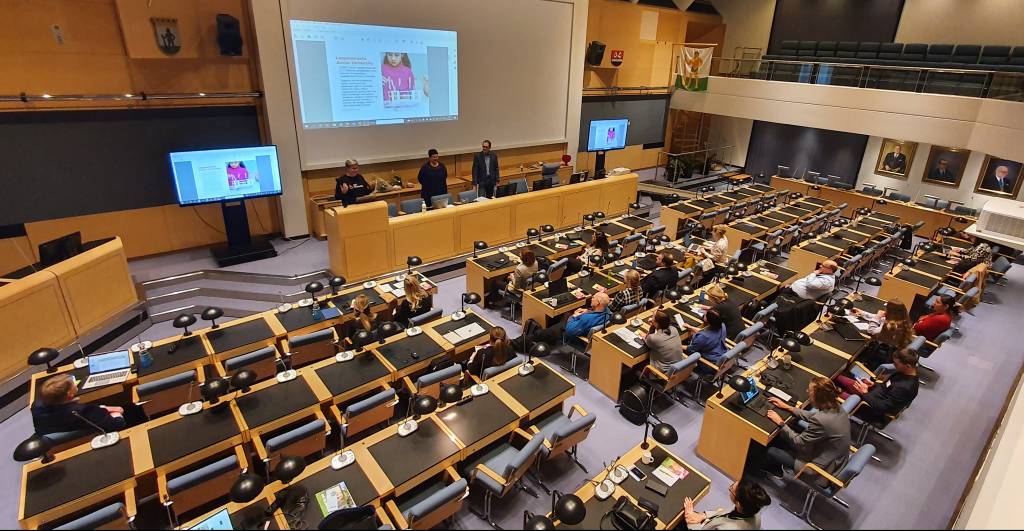The international results seminar took place over two days. The focus of the first seminar day was on presentations given by representatives of Nordic municipalities and CaPs researchers. The second day of the seminar took place as an interactive workshop facilitated by researchers from the LUT University (Lappeenranta, Finland).
 The first seminar day started with a presentation on citizen participation in Oslo and Lier, Norway. In a common presentation, urban planner Farah Humayun (Oslo, Norway) and professor Agnar Johansen (NTNU) discussed various ways in which Oslo and Lier have engaged citizens in the development of the municipalities, and the municipalities’ experiences of such endeavors. In the second presentation of the seminar, green area planner Laura Turpeinen from the municipality of Tuusula, Finland, presented experiences from participatory forest planning. The focus was on an interesting journey, in which the municipality pursued stakeholder dialogue and collaboration in an issue that attracts tensions and conflicting stakeholder expectations or viewpoints.
The first seminar day started with a presentation on citizen participation in Oslo and Lier, Norway. In a common presentation, urban planner Farah Humayun (Oslo, Norway) and professor Agnar Johansen (NTNU) discussed various ways in which Oslo and Lier have engaged citizens in the development of the municipalities, and the municipalities’ experiences of such endeavors. In the second presentation of the seminar, green area planner Laura Turpeinen from the municipality of Tuusula, Finland, presented experiences from participatory forest planning. The focus was on an interesting journey, in which the municipality pursued stakeholder dialogue and collaboration in an issue that attracts tensions and conflicting stakeholder expectations or viewpoints.
The day continued with the presentation by Tahmineh Akbarinejad from NTNU. In her research, Akbarinejad has focused on the assessment of social sustainability. Arguably, social sustainability is the least studied dimension of the three dimensions of sustainability. Akbarinejad presented her research on assessing social sustainability in Furuset, Oslo (Norway). The last presentation of the first half of the first seminar day focused on UNIORI. Uniori, also known as Lappeenranta Junior University, is a collaboration model between the city of Lappeenranta and the LUT University. The goal of the model is to create a continuum of general education from preschool to high school with close collaboration with the LUT University. The interesting presentation was given, and the lively discussion facilitated, by Laura Jouhkimo, Vesa Raasumaa and Mira Kankkunen.
The second half of the first seminar day started with a presentation by Lilli Siikasmaa from the city of Tampere, Finland. The topic of the presentation was participatory budgeting as a mechanism of citizen participation. The city of Tampere has implemented participatory budgeting two times and Siikasmaa shared their experiences and learnings regarding the model. The seminar day concluded with a presentation by PhD candidate Coline Senior from NTNU, Norway. Senior presented an intriguing form of citizen engagement called “ByMaker”. ByMaker, City Maker in English, is a web-based game designed to inspire and engage children and youth to sustainable development of cities. The game has been piloted in Trondheim, Norway, and the team led by Coline is now developing the game further.
The second day of the international results seminar took place as an interactive design workshop. The workshop was facilitated by post-doctoral researcher Nina Tura and professor Ville Ojanen from LUT University. In the workshop, international and multi-disciplinary groups of participants came together to “vision the cities of the future”. In particular, the multi-disciplinary groups worked on futuristic service concepts engaging citizens in the 2030s. The mock-up nature of the workshop and the lively discussion during and after the workshop created the perfect ending for the inspiring two days in Lappeenranta, Finland.
